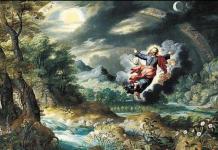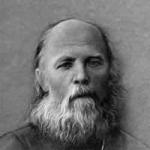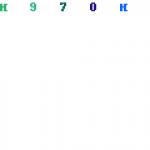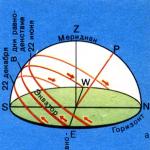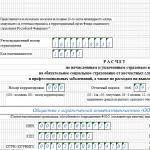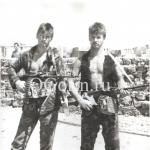Today this word is not uncommon causes a negative reaction, since the interlocutors do not always fully understand who exactly we are talking about.
Thanks to the effect of feature films and books, many have come to the conclusion that special officers are those who are capable shoot a man without a shadow of a doubt, even if the latter’s guilt has not been proven.
Others believe that special officers do not need a normal investigation of the criminal’s guilt at all, since have full power do whatever comes into their head.
This led to the creation of a certain image of a special officer who is not receptive to pleas, and is also incapable of showing compassion and maintaining honesty. Therefore, it is so important for a modern person to understand how an artistic image differs from his historical original.
Who were the special officers really? Outspoken fanatics those who are ready to put a person in camps without proper grounds, or those who performed thankless, but very important work for society. It's worth looking into it in more detail.
Formation of a special department
The need for decisive people always exists. It becomes especially bright at a time when the country is in danger.
Therefore, the appearance of special officers occurred at one of these turning points, namely in 1918, when the young Soviet state was in a state of fratricidal war, victory in which was not yet a foregone conclusion.
In particular, it was then that the opening was authorized special department who will deal counterintelligence activities.
The key task that faced the representatives of the department was to maintain the security of the state, as well as counter-espionage.
The department reached its peak of activity during the Second World War. In particular, in 1943 new name appears SMERSH, which can be deciphered as death to Spies, and they are starting to use it against special officers.
Agents were engaged creating a network of informants, and also sent their own people to individual units, creating a dossier on almost every soldier and commander.
Specialists during the war
Cinematography demonstrates unflattering image special department employee. When such a person came to the disposal of the unit, it openly spoke about problems and upcoming purges within the unit. But was it really like that?
This question interests many. Thus, during the first period of the war, many soldiers simply did not have the necessary documents, certifying their type of activity.
That's why Not only escaped prisoners of war regularly moved across the front line or those who lagged behind their units, but also enemy agents.
A bunch of Wehrmacht spies used this opportunity to infiltrate the command staff or support companies, carrying out sabotage or delivering information to the enemy about upcoming operations and the location of units.
To eliminate the danger for soldiers associated with the enemy receiving information about their deployment, special officers appeared who risked everything in order to bring victorious end of the war.
Therefore, one should not downplay their contribution to the war, as is fashionable today, presenting them as some murderers and executioners. Representatives of special departments and directorates also went on the offensive and also retreated, and in the case when the last squad commander fell under enemy fire, it was the special officer who had to take his place and lead the soldiers with him by personal example.
Not infrequently, special officers performed the most amazing feats of heroism, although oh they are often hushed up. They also had to do thankless jobs, including executions of alarmists and cowards, but at that critical moment in the first years of the war, this was the only way to keep the front line in relative stability.
But even at this time their main focus remained identifying enemy agents operating within the army.
Despite the prevailing opinion, special officers no one gave the right to kill soldiers without conducting an investigation, without proving guilt and without at least a formal trial.
Therefore, any mention of the fact that special officers allegedly shot military personnel in batches should be consider as speculation. The only situation in which such actions were permitted and even mandatory was an attempt to go over to the enemy's side.
However, even in this case, it was mandatory to conduct an investigation into each such case. Otherwise, the special officer only had to prepare a case and send it to the military prosecutor's office, and only after that a sentence was passed against the accused.
Not many people knew that the battalion had an investigator from a special department, or in common parlance a “special officer.”
What did he do? Is it needed?
Judge for yourself, but in those countries where there are no state security (national security) officers in the armed forces, military coups occur, combat readiness and discipline are not at the proper level, abuse of official position, corruption and theft flourish.
In our country, Special Departments were formed in the armed forces on December 19, 1918. They have been with the armed forces of our state for 96 years and have proven themselves positively.
Not many people know that during the years of repression, 44,000 security officers were repressed.
In addition, many employees died during the Second World War. Even now, principled military counterintelligence officers are “like a bone in the throat of individual commanders.” They defend a principled position, ensure the protection of state secrets, do not allow the theft of military property and equipment, or abuse of official position.
I would like to tell you an incident that happened to me in Moscow on Lubyanka Square, where Myasnitskaya Street begins.
I was walking to Bolshaya Lubyanka and saw a woman collecting signatures against the restoration of the monument to F.E. in the square. Dzerzhinsky. Two young guys approached her, and she told them that he, F.E. Dzerzhinsky, guilty of the 1937 repressions.
The guys began to put their signatures, and I asked the woman: “When did F.E. die? Dzerzhinsky? She replied that she didn't know. I said that he died in 1926 because he could have been guilty of the 1937 repressions. I recommended to the young guys: “Before you put your signature, think about what you are putting it under. If you don’t know, then it’s better to pass by, then study this issue more carefully, and don’t trust anyone’s word.” And the woman quickly collected her things and ran away.
What I mean is that security agencies and Special Departments, including, have never emphasized the results of their work and achievements. They work quietly. It was not for nothing that in some garrisons the employees of the Special Departments were called “shut up, shut up.”
I knew many special officers; I cannot say that all of them were ideal. There are probably no ideal people. Each of us has some shortcomings.
But we tried not to violate the basic installation of F.E. Dzerzhinsky: “The security officer must have clean hands,  a cool head and a warm heart." Most security officers in the military speak several foreign languages, are culturally savvy, legally savvy, and are psychologists of sorts.
a cool head and a warm heart." Most security officers in the military speak several foreign languages, are culturally savvy, legally savvy, and are psychologists of sorts.
I personally know three foreign languages. Oleg Afanasyev said correctly, everything depends on the person.
When I arrived in Kandahar to join the air assault battalion, I was told that paratroopers do not respect cowards. And I went to all the combat events.
Battalion commander Valery Nikolaevich Dunaev, although at first glance he was stern, was constantly worried about each of his subordinates. During combat, the battalion commander assigned one or two paratroopers to me.
Once two paratroopers - two Veliksa brothers from Latvia - saved my life by covering me with their bodies when they hit me.
shot. To be honest, I didn’t even have time to understand what happened.
The always cheerful deputy tech Yurilin Viktor took out and assigned an armored personnel carrier - 70 to me. He made it a “candy”, despite the fact that the battalion only had BMP-2s.
I have never had problems providing the armored personnel carrier with fuel, spare parts and ammunition.
The deputy battalion commander for airborne training, Dmitry Shemyakin, repeatedly gave me combat training lessons during combat operations.
Once during combat, he drove me under the armor, but he himself did not have time to take cover and received a head injury. I can only say a big thank you to them for their good attitude towards the employee; the combat experience that I received and which was still very useful to me; for lessons in establishing psychological contact, both with the command and with the personnel of combat units. I never felt like an outsider or out of place in the battalion.
A lot of good things can be said about the officers and warrant officers of our battalion and written about the interesting moments that happened to all of us during combat. And ordinary paratroopers had many interesting moments during combat operations.
When I went to Afghanistan for the second time, I was already serving in a combat engineer battalion. The sappers told me that going to combat as part of an air assault unit is a trifle, and they suggested that I walk through mines with a probe when clearing areas of land. Only after this did the sappers accept me into their team. While serving the hospital, I had to attend the autopsy of dead military personnel in order to establish the true causes of their death.  Take my word for it that this is also very difficult, especially when you knew the person. Of course, it was easier for me when servicing communications units.
Take my word for it that this is also very difficult, especially when you knew the person. Of course, it was easier for me when servicing communications units.
During my military service in the Black Sea Fleet, in three years I became a 1st class radio mechanic, a 2nd class radio relay operator, a 3rd class antenna operator, a projectionist and a hairdresser. Subsequently, all this for me
very useful. Special officers have to know their units, their features, and their equipment. Employees of the Special Department are constantly at the forefront of all events.
Therefore, the ability to work with people is our main task. But people are different...
In the course of communicating with them, we improve our professional experience. I have always had a motto: “Live forever, learn forever.” True, some guys complement him: “..., but you’ll still die a fool.”
Of course, it is not possible to know everything, but we must strive for this. Life forces you. You have to constantly fight. Therefore, an assessment can be given to a specific person, but not to the department or combat unit as a whole. The point of view expressed may turn out to be erroneous. And then what?
It's easy to offend someone, but it's hard to make him a friend.
I have always respected all the military personnel serving in the Kandahar air assault battalion, be they officers, warrant officers or paratroopers. In return I received the same kind attitude towards myself.
I am very grateful to you, dear paratroopers.
Sincerely, Special Officer V.I.
P.S.
Personally, I never divide those who served in the battalion into true paratroopers and not so much, and it would be stupid to do this in a unit that was recruited conditionally in the proportion of 50 to 50.
In any position there were people who, regardless of rank, are remembered either with a kind word or not.
...All the “specialists” - mechanics-drivers and gunners-operators of infantry fighting vehicles, medical instructors - they all came from infantry training, because the infantry fighting vehicle is not an airborne vehicle.
But nevertheless, all of us who served in the Kandahar airborne assault battalion are paratroopers!
...There is a saying that there are no former KGB officers? Why should this only apply to them?
There are no former paratroopers of the Kandahar air assault battalion either!
Gorin Oleg
SPECIALIST, a, m. Employee of the Special Department (for example, in the army, in security agencies); about any person who behaves in a special way. Why don’t you drink, special officer or something? Give him a penalty as a special officer... Dictionary of Russian argot
special officer- , a, m. An employee of a special department, a special unit. ◘ I order you, the special officer shouted, and no joke to me. He clicked the shutter. Zhitkov, 1989, 188. Special officers and tribunal officers got out of captivity and zealously set about searching for the capture of the rebels: they caught ... Explanatory dictionary of the language of the Council of Deputies
A special department is a military counterintelligence unit that was part of the Soviet army. Special departments were created on December 19, 1918 by a decree of the Bureau of the Central Committee of the RCP (b), according to which the front and army Chekas were merged with the bodies of the Military ... ... Wikipedia
special officer- especially ist, and... Russian spelling dictionary
A; m. Razg. An employee of a special department in a military unit, at an enterprise, etc., dealing with issues of protecting state secrets... encyclopedic Dictionary
special officer- A; m.; decomposition An employee of a special department in a military unit, at an enterprise, etc., dealing with issues of protecting state secrets... Dictionary of many expressions
special officer- special/ist/ … Morphemic-spelling dictionary
especially- Adj. to special...
special- a, e. What is it about someone’s specialness, individuality; in the language of which there are no special, individual figures, features... Ukrainian Tlumach Dictionary
Books
- Razumniki: How to develop a successful personality, Amanda Ripley, How to teach a child to think critically? How do other countries grow wise and what role do fathers and readers play? How can I steal school for my child? Schotake global testing... Publisher: K.FUND, Manufacturer: K.FUND,
- The peculiarity of the child. Safety Rules (set of 9 posters), Amanda Rippley, Set of 9 color double-sided posters. Topics: Safety at home Safety on the street Safety on the road Safety on a bicycle Not safe in the hour of a thunderstorm Be careful:… Series:
In many films about war, the image of a special officer evokes anger, contempt and even hatred. After watching them, many people formed the opinion that special officers are people who can shoot an innocent person with virtually no trial or investigation. That these people are not familiar with the concepts of mercy and compassion, justice and honesty.
So who are they - special officers? those who sought to imprison any person, or the people on whose shoulders a heavy burden fell during the Great Patriotic War? Let's figure it out.
Special department
It was created at the end of 1918 and belonged to the counterintelligence unit that was part of the Soviet army. His most important task was to protect state security and combat espionage.
In April 1943, special departments began to bear a different name - SMERSH bodies (stands for "death to spies"). They created their own network of agents and opened files on all soldiers and officers.
Specialists during the war
We know from films that if a special officer came to a military unit, people could not expect anything good. A natural question arises: what was it really like?
A huge number of military personnel did not have certificates. A huge number of undocumented people were constantly moving across the front line. German spies could carry out their activities without much difficulty. Therefore, it was quite natural for the special officers to have an increased interest in people who were in and out of encirclement. In difficult conditions, they had to establish the identities of people and be able to identify German agents.
For a long time in the Soviet Union it was believed that the special forces created special detachments that were supposed to shoot retreating military units. In fact, everything was different.

Special officers are people who risked their lives no less than the soldiers and commanders of the Red Army. Together with everyone else, they took part in the offensive and retreated, and if the commander died, then they had to take command and raise the soldiers to attack. They showed miracles of selflessness and heroism at the front. At the same time, they had to fight alarmists and cowards, as well as identify enemy infiltrators and spies.
- Special officers could not shoot military personnel without trial. In only one case could they use weapons: when someone tried to go over to the side of the enemy. But then each such situation was thoroughly investigated. In other cases, they only transferred information about identified violations to the military prosecutor's office.
- At the beginning of the war, a large number of experienced, specially trained and legally educated employees of special departments died. In their place they were forced to take people without training and the necessary knowledge, who often violated the law.
- By the beginning of the Great Patriotic War, there were a total of about four hundred employees in special departments.

Thus, special officers are, first of all, people who tried to honestly fulfill the mission assigned to them to protect the state.
For those who served in the army, especially in officer positions, it is well known who the “special officers” are. These are representatives of the KGB (and now the FSB) in army units. Their main task at all times was to carry out work to prevent the intelligence activities of the enemy (actual and potential) in the army. Essentially, these are army counterintelligence agents.
Their activities were of a very specific nature; they carried out their work quietly, inconspicuously, using methods only known to them. They were jokingly called “shut up, shut up.”
As a rule, ordinary military officers became “special officers”, as if they were “removed” from the troops and returned back to army units after special training and worked there as “special officers.”
They had fairly large powers, and in matters of their competence they went directly to the commanders of the units to which they were attached. The commanders were obliged to provide them with all possible assistance and assistance in solving special problems.
However, this in no way gave the right to “special officers” to interfere in issues of combat and political training, or to command personnel at any levels and units of the military body.
It must be said that they never did this, they had enough of their own worries, however, in any family there is a black sheep. Unfortunately, even in this environment there were overly ambitious or simply not smart officers who sometimes exceeded their powers.
“Grandfather Zhenya” once told me about one such incident from his life during our next meeting.
It was 1938. The situation in the Far East was extremely tense. The Japanese became completely insolent, provocations on the border became commonplace. In this situation, says Emelyan Filaretovich, the regiment mastered the new I-16 fighters that had just been received under the rearmament program. This car was special, in which aircraft designer Polikarpov tried to combine speed and maneuverability as much as possible, which he succeeded brilliantly, but nothing comes easy without loss. The machine turned out to be quite difficult to operate and required good flight training from the pilots.
The regiment intensively mastered the new aircraft, flights took place every day, with maximum tension, because there was no time for “relaxation”. The command to engage in hostilities could be received at any moment.
Technology always remains technology, especially new, not fully “broken-in”. Problems, naturally, arose, but where could you get away from them? Once during the flight, when landing with me, the general recalls, one of the landing gear wheels on the plane did not come out and I had to land the car on the only other one, but, thank God, everything worked out. However, fortunately, there were no serious accidents or even catastrophes.
On this day, one plane crashed during landing, i.e. after touching, he stuck his nose into the ground and damaged the propeller blades. This happens most often when, for one reason or another, the landing gear wheels jam after landing.
The case, of course, is not pleasant, but not from the category of “emergency”. My deputy was in charge of the flights that day. He informed me about the incident and I immediately hurried to the airfield. However, a few minutes earlier, the regimental “special officer”, Senior Lieutenant Krutilin, rode there on a bicycle.
He was a “lad”, I’ll tell you Kostya, not a pleasant one, he always “poked his nose” into things that weren’t his own and tried to command not only the flight and technical personnel, but even, sometimes, squadron commanders. More than once I had to carefully put him in his place, but still smoothing out the “sharp corners”, trying to resolve conflict situations as diplomatically as possible.
However, what happened this time drove me crazy!
I discovered that flights have been stopped. What’s the matter, I asked the deputy, why aren’t we flying?
- Senior Lieutenant Krutilin, the deputy reports, ordered to stop flights due to an accident on the airfield. I didn’t start a conflict and decided to wait for you.
Where is he, I ask?
- Yes, he’s standing to the side with his bicycle.
Send a soldier, tell him that I am calling him here.
Krutilin walked up with an untied gait, without saying a word, showing with all his appearance that he was the real master of the regiment.
Comrade senior lieutenant, weren’t you taught in the army how to approach and report to the senior commander when he calls you?
- And you are not my boss for me to report to you!
Everyone was taken aback, they didn’t even expect such “greyhound” from him, they were looking to see what I would do in response. It was clearly visible that Krutilin was provoking me to an inappropriate act, so that I would break loose and do something that I had no right to do, or give up in front of him in front of my subordinates.
Get out of here, and don't set foot on the airfield without my personal permission!
“Well, you, Major, will bitterly regret this,” Krutilin, who had turned white with anger and frustration, squeezed out, grabbed his bicycle and rode off from the airfield.
I gave the command to continue flying and went to regimental headquarters. No one else saw Krutilin in the regiment's disposition, and a day later I was summoned to the commander.
Blucher had the head of the political department of the Army and the head of the special department.
Reported his arrival as expected. The commander greeted him and, with a gesture of his hand, invited the head of the special department to ask questions.
- Comrade Major, explain why you expelled the representative of the special department from the regiment, or did you yourself decide to catch spies in the regiment?
- No, comrades colonel, no one expelled Krutilin from the regiment, but only from the airfield, where he has no right to enter during flights without the permission of his superior.
- Why didn’t he allow him?
“He didn’t ask permission from the flight director; moreover, he ordered the flights to stop.”
- So did he stop?
- Yes, before my arrival at the airfield.
- Who has the right to stop or continue flights?
- Only the flight director and I personally, the regiment commander.
- And what about Krutilin, how did he explain his actions to you?
- No way, he started to be rude in front of the personnel, so I kicked him out of the airfield and told him to appear at the airfield, if necessary, during flights with my personal permission.
- So you didn’t kick him out of the regiment?
- Of course, what right would I have to do this, and why, I understand that spies will still have to be caught, and that’s his business.
- Yes, that's for sure!
The head of the special department smiled, stood up, and turned to Blucher.
- Comrade commander, I have no more questions for the major.
“And even more so for me,” Vasily Konstantinovich answered. Do you have any questions for us?
“In working order, if you allow me,” I answered.
“Well, we’ve agreed,” Blucher summed up the conversation.
- May I go?
- Yes, of course, go and work.
Krutilin was removed from the regiment and was replaced by a captain, a good, intelligent officer, with whom they immediately found a common language and resolved all issues without any problems.
And fate brought Krutilin together again, this time during the war. He came to my regiment to ask, he didn’t want to go to the infantry, they say, we are old acquaintances from the Far East. Naturally, I put him out there, I knew what kind of goose he was.
- Emelyan Filaretovich, well, in general, this sore subject, repression, how did you manage to avoid all this?
- This is the year 1937, I fought in Spain then, and when I returned, everything had already passed. As you can see, even conflict situations with the “special officers” were resolved objectively, no one was arrested or brought to trial “for no reason.” And even more so during the war, it was necessary to fight, people died, every pilot, and especially the commander, was specially registered; they did not touch anyone without a serious reason. In my regiment and then in the division, no one was ever arrested through the special department.
What about Stalin, what was he like?
- I saw him quite closely several times at various events. He was a serious man and very authoritative. Something really unusual came from him. Glubokoye was respected. In any case, I personally can’t say anything bad about him. Well, there was no need to communicate; after all, the level is incomparably different. But I met Marshal Zhukov many times. It was he who personally asked me to go to China as the chief military adviser.
- What, you already asked?
- Yes, that’s right, because the work there had to be special. Of course, I perceived his request as an order, I didn’t think twice about it, it’s necessary, it means it’s necessary, but that’s a different story.
Okay, let's go have tea, Nila Pavlovna has already been waiting for us.
Kyiv. December 2011


